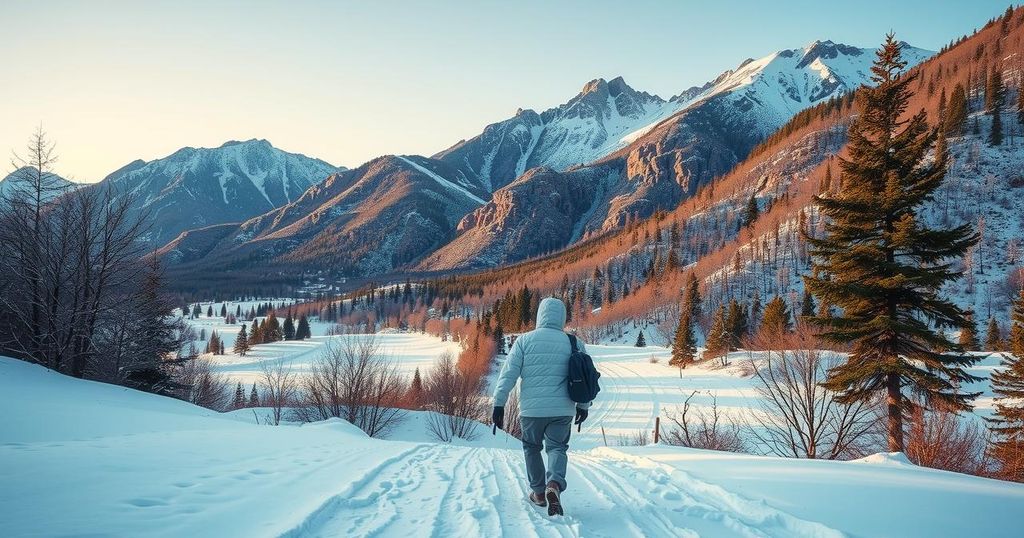A recent report highlights that winter is set to be shorter by two to ten days in the Mountain West due to climate change, particularly affecting states like Arizona, New Mexico, and Nevada, which have lost an average of ten below-freezing days annually. In contrast, higher-altitude states like Wyoming and Montana face fewer losses. This shift has significant implications for ski resorts and local ecosystems, emphasizing the urgency of addressing climate change.
Recent findings indicate that residents in the Mountain West will experience a reduction in winter duration, with the season anticipated to be shorter by two to ten days this year. This discovery, reported by Climate Central, attributes the decrease in below-freezing days to climate change. States such as Arizona, New Mexico, and Nevada are particularly impacted, averaging a loss of ten such days annually. “A little bit of warming can have a much bigger impact on things like whether precipitation falls as rain or snow,” remarked Kristina Dahl, Vice President of Science at Climate Central. In contrast, higher-elevation states like Wyoming and Montana are experiencing fewer losses, with Wyoming averaging two lost days. Dahl emphasized that although these states are still below the concerning temperature thresholds, they too are warming. Meanwhile, Idaho and Colorado report losses of an average of four winter days. If these trends persist, ski resorts may face shortened seasons, and the implications could extend to ecosystems, as disrupted blooming patterns could affect crop pollination. Furthermore, diminished winter snowfall poses significant risks to water supply systems.
Climate change is markedly influencing weather patterns, particularly in winter seasons across the Mountain West region. The data reflects a broader trend of warming temperatures leading to fewer days with below-freezing temperatures. This not only impacts recreational industries such as skiing but also has far-reaching consequences for local ecosystems and agricultural practices, as the timing of natural events such as flowering and pollination can be disrupted. Understanding the nuances of these changes is crucial for regional stakeholders.
In conclusion, the Mountain West is facing significant alterations to its winter season due to climate change, highlighted by a decrease in days with freezing temperatures. The regions most affected, like Arizona and Nevada, may encounter adverse impacts on local ecosystems and economies reliant on winter activities, such as skiing. As climate trends continue, proactive measures may be needed to mitigate adverse effects, particularly concerning water supplies and seasonal biodiversity.
Original Source: www.upr.org






